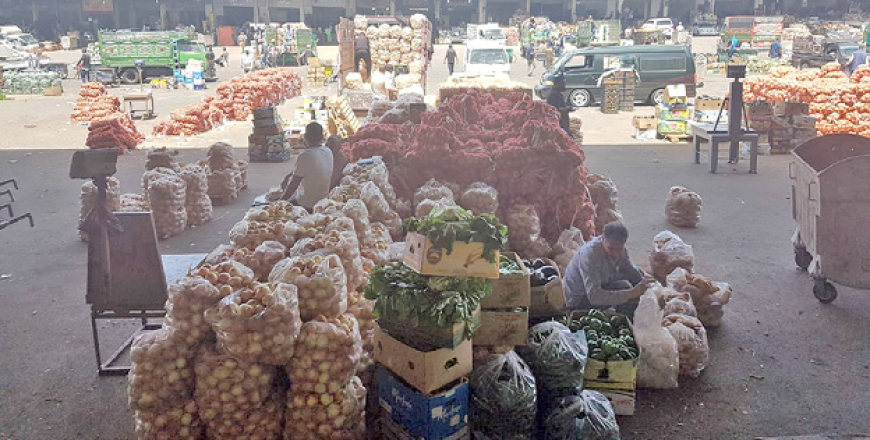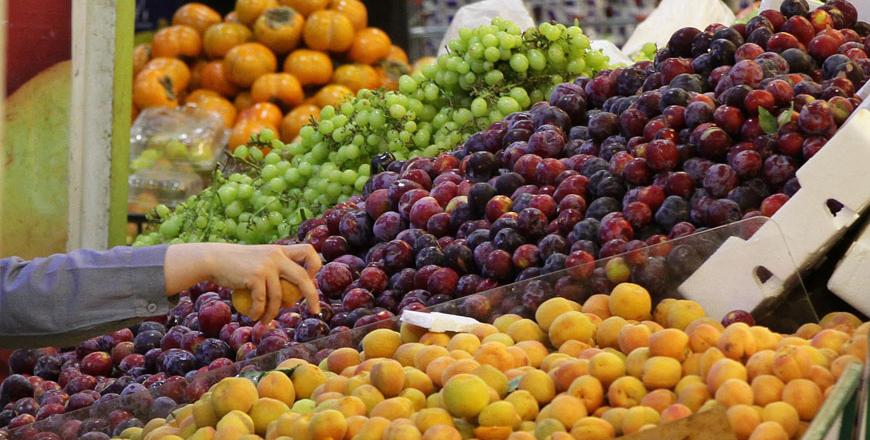You are here
Farmers attribute Jordan’s ‘alarming’ food waste to weak supply chain management
By Rayya Al Muheisen - Jun 27,2023 - Last updated at Jun 27,2023

It is estimated that 22 per cent of locally produced fruits and vegetables are lost along the different nodes of the supply chain, according to the UN (File photo)
AMMAN — Weak food supply chain management, as well as inefficient coordination and communication within the food supply chain, contribute to major food waste in Jordan, according to farmers.
Despite many initiatives instituted by the Ministry of Agriculture and relevant non-profit organisations to raise awareness of food waste, the issue remains a daily challenge at both on the household and supply chain levels.
Food waste in Jordan is influenced by both consumption patterns and cultural practices. For example, large amounts of food are prepared for social gatherings or events, leading to a surplus of food that is more likely to be wasted.
Food waste in Jordan is estimated at 93kg per person every year, representing 955,000 metric tonnes of food, which could feed 1.5 million people for a whole year, according to UN Jordan’s website.
It is estimated that 22 per cent of locally produced fruits and vegetables are lost along the different nodes of the supply chain, according to the UN.
“The figures are quite alarming, especially in a country that is water and energy-deficient,” the website added.
“A huge part of the issue is a supply chain problem,” Ali Qaraeen, a farmer based in Tafileh located approximately 180km south of Amman, told The Jordan Times.
All the harvesting at Qaraeen’s farm is done manually by farmers. Qaraeen takes approximately two days to collect enough produce to fill up his truck, which is then sold at the central vegetable market in Amman.
Wholesalers buy the whole truck and put the produce for sale for retailers, who then sell the produce to the final consumers. Meanwhile, the produce is transported in boxes, without any cooling or ventilation, said Qaraeen.
“Lack of proper planning and coordination between farmers, wholesalers, retailers and consumers, as well as inadequate storage and preservation techniques can result in food losses at various stages,” Qaraeen told The Jordan Times.
Inadequacies in cold chain systems, transportation facilities and storage infrastructure can lead to food spoilage and waste before it even reaches consumers, said Qaraeen.
Radi Ajarmeh, another farmer based in Tafileh, told The Jordan Times that renting out refrigerated trucks exceeds the average farmer's budget.
Ajarmeh added that refrigerated trucks are usually used to transport dairy products, meat and pharmaceutical products, not vegetables and fruits.
Exposure to extreme heat and direct sunlight spoils fruits and vegetables, Ajarmeh explained.
Ajarmeh attributed a “big part” of food waste to poor logistics in the agricultural sector.
Related Articles
AMMAN — The Merchants Union of Vegetables and Fruits Exporters on Wednesday warned that the shortage in refrigerated trucks will cause a dro
Prices of several vegetables available in the central market are now below production cost, especially potatoes and tomatoes, which has negatively affected farmers, according to Jordan Exporters and Producers Association for Fruits and Vegetables President Saadi Abu Hammad.
AMMAN — Farmers and exporters are continuing to incur losses as a shortage in refrigerated trucks persists, the Merchants Union of Vegetable
















